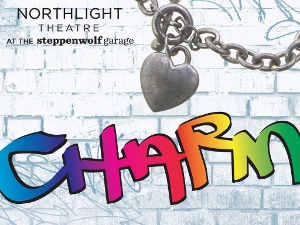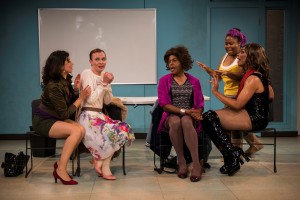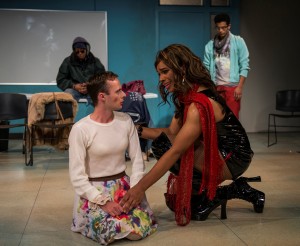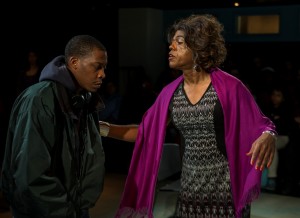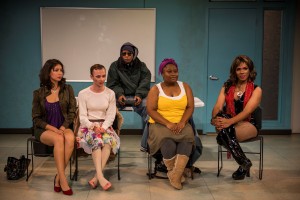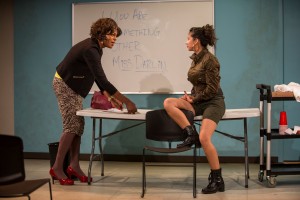TEA AND SYMPATHY–AND TRANSGENDERED KIDS
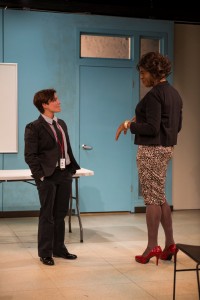 It makes an irresistible transformation tale: Teachers shape students, then get golden too as a Midas touch reverses course. We love it in To Sir With Love, Dangerous Minds, Goodbye Mr. Chips, Fame, Stand By Me, Glee, Teacher’s Pet, Boys’ Town, The Miracle Worker, White Squall, Dead Poets Society–even negative versions like Miss Margarida’s Way and Sister Mary Ignatius Explains It All For You. We all go to the head of a class where you can make yourself up as you go along.
It makes an irresistible transformation tale: Teachers shape students, then get golden too as a Midas touch reverses course. We love it in To Sir With Love, Dangerous Minds, Goodbye Mr. Chips, Fame, Stand By Me, Glee, Teacher’s Pet, Boys’ Town, The Miracle Worker, White Squall, Dead Poets Society–even negative versions like Miss Margarida’s Way and Sister Mary Ignatius Explains It All For You. We all go to the head of a class where you can make yourself up as you go along.
Charm gives the genre a bold new track, and unlike many in this “school” of drama it’s based on a real and marvelous mentor. Nurtured by Northlight Theatre and wonderfully shaped by director BJ Jones, this new offering from Philip Dawkins (Miss Marx, The Involuntary Side Effect of Living, Failure: A Love Story and the excellent The Homosexuals) celebrates the contribution of a volunteer pedagogue: Miss Gloria Allen, a transgendered, middle-aged African-American life-changer. In Japan she’d be called a “living treasure.” In Chicago she’s a collateral curiosity.
Before her death as a diabetic sexagenarian (a “tranny on a trolley”), this singular instructor taught a popular and controversial class in “charm,” transforming the Center on Halsted, Chicago’s LGBTQ community center, into a finishing school for low-income, transgendered, and often homeless teens. Courtesy is contagious: As we see over 130 minutes, so are the struggles in insecurity and angst that cross generations. Here, courtesy combined with solidarity and sympathy creates charms to kill curses.
Dawkins artfully alters Gloria Allen into Mama Darleena Andrews, played by wonderful Dexter Zollicoffer with a honeyed drawl and invincible integrity. Her “fab-U-lous” etiquette class, complete with make-up makeovers (for the guys to also give their girls), is her “gift” to a rude world that doesn’t just marginalize transitional children–it bullies them into brutal and unaccountable misfits. Inspired by that mistress of manners Emily Post (who will actually appear to a dying Mama in a vision that begets a blessing), Mama Darleena has rewritten her sad, abused past life. Now she promises to “trans”form her seven students so they can manage their sexual and psychic evolution with grace, dignity and, well, charm.
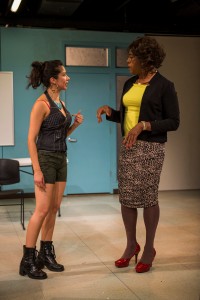 For all its predictable obstacles yielding to feel-good outcomes, systemic emotional breakdowns, and redemptive reconciliations, charming is what you see and get at Steppenwolf’s Garage Theatre. It’s beautiful to watch an abandoned plot flourish into flowers and fruits. No miracle worker, Zollicoffer’s nurturer tactfully tackles the hard times and bad luck that beset her brood. She makes her garden grow.
For all its predictable obstacles yielding to feel-good outcomes, systemic emotional breakdowns, and redemptive reconciliations, charming is what you see and get at Steppenwolf’s Garage Theatre. It’s beautiful to watch an abandoned plot flourish into flowers and fruits. No miracle worker, Zollicoffer’s nurturer tactfully tackles the hard times and bad luck that beset her brood. She makes her garden grow.
Among the not-so-gay group are Victoria (Brittney Love Smith), a big-boned dreamer with body-image issues who uncritically adores her ex-con husband Donnie (Julian Parker): Tempted to return to the thug life and become a serial shooter, this “baby daddy” has a bad girl on the side. Namir Smallwood festers as gay gangbanger Beta, a wanna-be enforcer with the “Sesames”: This punk with a hoody perversely gets discriminated against by the discriminated against. In contrast, adorable Awate Serequeberhan plays an anomaly: This trust-fund pretty boy/nerd is just gay (and he’s good with it too). He just wants to slum it with exotic Jonelle (Armand Fields), a life force with an identity crisis built for two. Mama’s most challenging pupils are Matthew Sherbach’s Glee-like girly-boy Lady, rocky in his “irregular” sexual journey from one stereotype to another, and Latina spitfire Ariela (Monica Orozco), a young mother and searcher for “safety” whose toxic lack of self-esteem endangers them all.
Haplessly trying to fit this subversive etiquette class into the Center’s “big picture” is administrative coordinator D (Elizabeth Ledo). She’s an endearing case history of damage control and trouble shooting in full operation. (How, D wonders, can Mama raise enough money through Kickstarter or donations to take the kids to a high tea party at the Drake Hotel?) Despite a complicated classroom, Mama remains shakily steadfast, a modern-day Sojourner Truth running her own “underground railway” to rescue life’s outcasts. Zollicoffer’s unflappable rectitude as this combination of church lady, Mother Courage, Auntie Mame, and Crying Game survivor takes hold of our hearts.
A flimsy shelter from life’s storms, Mama’s hothouse incubator is not adored by everyone in “Boystown”–nor are these “runaway throwaways” who supposedly commit crimes on Halsted Street. A critical piece in the Chicago Reader impugns 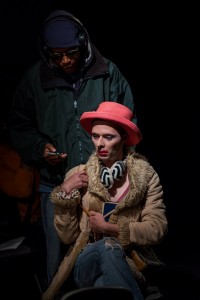 Mama’s motives, cynically implying that the real purpose of her course is to teach whores how to use their gentility and couth to get more cash from customers. So much for good manners leveling all ranks: When you’re poor, you should act that way, it’s implied. Don’t confuse straight people–they’re allergic to differences.
Mama’s motives, cynically implying that the real purpose of her course is to teach whores how to use their gentility and couth to get more cash from customers. So much for good manners leveling all ranks: When you’re poor, you should act that way, it’s implied. Don’t confuse straight people–they’re allergic to differences.
Charm is not without its blind spots: There’s a heavy-handed comparison of transgendered sexual confusion to an “IPhone with apps.” Worse, the play is oddly reluctant to confront a central question: Can a “charm” offensive really alter the world? What good is all your elegant behavior if, like most of us, you never get to enjoy a high tea in the Main Lounge of the Drake Hotel? These quibbles notwithstanding, a suburban enclave like Northlight Theatre deserves big kudos for taking on Dawkins’ “sympathy for life’s underdogs.” Bravo, Skokie, and BJ Jones!
Sure, nobody promised us a rose garden. But thank fortune for unashamed do-gooders like Gloria Allen who attack the thorns. Warmly written and potently performed, Charm is a very cool consolation for a rather cold world.
photos by Michael Brosilow
Charm
Northlight Theatre
Steppenwolf’s Garage Theatre, 1624 N. Halsted
ends on November 8, 2015
for tickets, call 312.335.1650 or visit Steppenwolf
for more info, visit Northlight
for more info on Chicago Theater, visit Theatre in Chicago
